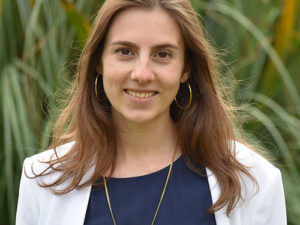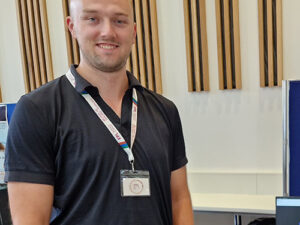João Daniel Correia Brandão | Universidade do Porto - Faculdade de Engenharia
Supported by FCT|FCCN

João is finishing his master's degree in Electrical and Computing Engineering at the Faculty of Engineering of University of Porto (FEUP). He is interested in Energy Systems, mainly in incorporating renewable energy towards the energy transition.
João's master's thesis, The Value of Renewable Energy Communities, intends to assess the impact of these communities on users and the energy grid - pointing out benefits, challenges and existing barriers. Renewable energy communities are a promising approach that can re-arrange the up-bottom organisation of energy systems, and provide citizens with cleaner, cheaper and securer energy, while promoting local ownership and social collaboration. These communities have the potential to transform the energy landscape by promoting clean energy generation, reducing greenhouse gas emissions and empowering communities to take charge of their energy future.
Lightning Talk | TNC23, Tirana, Albania
POWERING THE FUTURE: THE VALUE OF RENEWABLE ENERGY COMMUNITIES IN A DECARBONIZED WORLD
The transition to renewable energy is critical to mitigate the effects of climate change and achieve a sustainable future. One promising approach to advance this transition is through the development of Renewable Energy Communities (RECs). These communities are formed by groups of people or organisations that come together to produce, consume and share renewable energy locally. They are designed to promote local ownership, collaboration and innovation in the deployment of renewable energy technologies.
To fully realise the potential of these communities, assessing their value and impact is essential. This assessment will provide insights into the benefits and challenges associated with RECs, and help identify best practices for their development and implementation. It will also evaluate the economic benefits of these communities, including the potential for job creation, increased economic activity and cost savings for participants.















